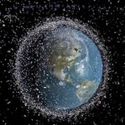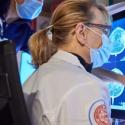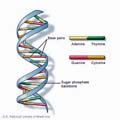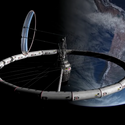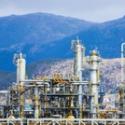Science Is Essential
Science touches so many aspects of modern life that it's hard to keep up. Through our programs and this website, Science for the Public provides up-to-date information about scientific innovations, discoveries, and issues that are shaping modern knowledge.
Coming Events
No events are scheduled for June or July
Recent Events
Space Debris Alert!: The Potential Impact on the Ozone Layer and Earth’s Climate
05/27/25 (rescheduled from April) Thousands of satellites orbit Earth. At the end of their missions, they drop into and burn up in the stratosphere, depositing ash that contains oxides and pollutants that are affecting both the ozone layer and the planet's climate. Atmospheric scientists are working to analyze the aerosols and their worrisome impact. Daniel Cziczo
The Brain-Computer-Interface Paradox
05-20-25 For individuals paralyzed by injury, stroke or ALS, brain-computer-interface (BCI) devices can enable movement and even speech. However, there are concerns: specifically, that such technology could be developed for mind control. Lukas Meier
Cancer Research: How It Works and Why It's Crucial Today
04/08/25 Numerous types of cancer are increasing today and scientists are trying to identify the causes. That's why cancer research is one of the most important concerns of modern science. We learn how the research is done and also why federal funding for this work is essential. Gerald Denis
Cosmos: Black Holes
Paradoxical objects that underscore the mystery of the universe, black holes seem the ultimate destructive force, but may be essential to the stability of galaxies...
Atom
The concept that all matter is composed of an invisible but fundamental entity was resisted for a very long time.
Resistance to New Ideas
Many of the most important advances in scientific understanding were initially rejected or ignored.
Life: Defining Life
The fine line between animate and inanimate, and between quasi-life and life. ....
Featured Items
Using Gravitational Lensing to Detect Dark Matter
01/14/25 Dark matter accounts for some 27 percent of the universe but is invisible. One promising technique to reveal it is the analysis of gravitational lensing that very occasionally aligns galaxy clusters. Jacqueline McCleary
Is Earth Exceptional?
02/18/25 Is there life beyond Earth? So far, despite the discovery that there are billions of planets in our galaxy, and our increasingly sophisticated probes for life, we still don’t know. Life and the conditions for its emergence are both very complex phenomena. Mario Livio
Heads Up! Surprising Stats
Science for the Public is committed to improving public knowledge of science and public appreciation for the contributions of science to social progress.

Our Expanding Universe: The DESI Project's First Results
05/14/24 WGBH Forum Network Webinar. The Dark Energy Spectroscopic Instrument (DESI), specifically designed to measure the universe's expansion, has now produced the largest and most precise 3D map for the expansion analysis. And the first results of the survey are amazing. Paul Martini

Addressing the Global Water Shortage
03/11/25 Due mainly to climate change and wasteful agricultural practices, the supply of freshwater is rapidly diminishing across the globe. To provide water for the world’s huge population, governments must quickly develop advanced conservation and sustainability policies. Jay Famiglietti
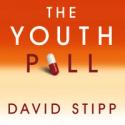
The Youth Pill
09/10/10 What are the possibilities of extending human life and good health? David Stipp

What Ails American Healthcare?
08/30/22 The U.S. healthcare system ranks last among 11 high-income countries. We spend more than other nations on medical care, but the service is seriously inadequate. What can be done? Melissa Gariddo
Today's Featured Contributors
Featured Author

Robert Whitaker
One of the best sources on overprescribing and the serious long-range effects of many psychotropic drugs
Featured Guest

Maria Ivanova, Ph.D.
An outstanding researcher and advocate for international policies to protect wildlife, environment and resources.
As a world society, it seems clear that we have arrived at a point in our history when there must be a major increase in the capability of ordinary people to cope with the scientific and technological culture that is shaping their lives and the lives of their children.
—Leon Lederman, Nobel Laureate in physics

